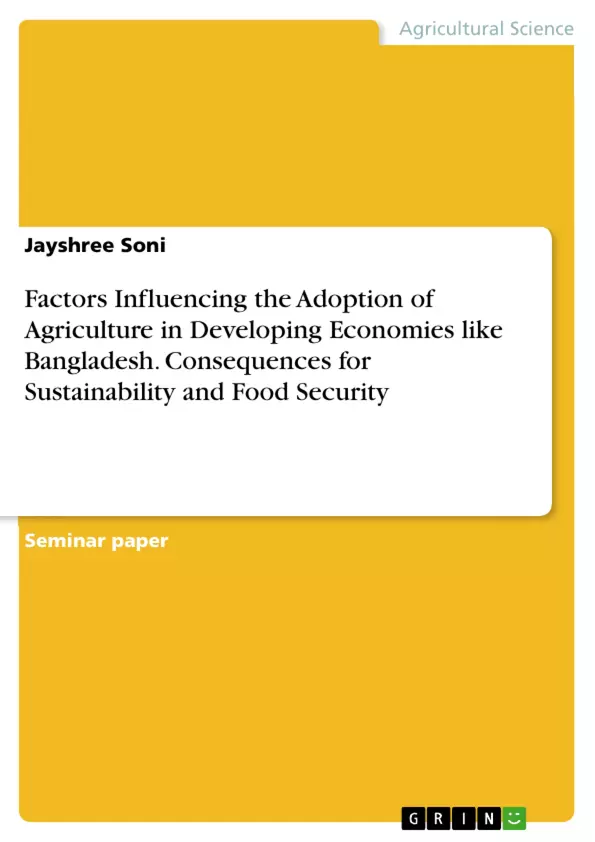This review aims to group, survey, and dissect the progressive connections among the drivers of Farming 4.0 with respect to an emerging economy like Bangladesh by following the Pareto investigation. The study is supposed to contribute essentially to future advancement and advancement in the horticulture area, kill hunger and further develop provincial food security. It can possibly help the experts and industry heads of arising economies in essential dynamic in accomplishing maintainability in the horticultural area and accordingly accomplish the significant SDGs.
Worldwide food frailty has turned into a critical concern, particularly for arising economies. The emergency has been exacerbated as of late because of the serious store network interruption coming about because of the Coronavirus pandemic and the continuous Russia-Ukraine war. Farming 4.0, which joins ordinary agribusiness with different present day state of the art advances, could assist in such manner with further developing the food supply and food security. In such a specific situation, it is fundamental to precisely recognize the relevant drivers of Farming 4.0 execution to guarantee supportability and food security in arising economies.
Inhaltsverzeichnis (Table of Contents)
- Introduction
- Writing Survey
- Agriculture 4.0 and its possibilities in the arising economy
- Drivers of Agriculture 4.0 adoption: A review
- Existing challenges in Agriculture 4.0 adoption
- Methodology
- Analysis and Results
- Identification of driving factors
- Interrelationships of driving factors
- Discussion
- Conclusion
Zielsetzung und Themenschwerpunkte (Objectives and Key Themes)
This study aims to identify the driving factors influencing the adoption of Agriculture 4.0 in emerging economies, particularly focusing on Bangladesh. The study intends to understand the interrelationships among these drivers and ultimately provide practical recommendations for stakeholders in the agricultural sector to promote sustainable practices and ensure food security.
- Importance of Agriculture 4.0 in emerging economies
- Drivers of Agriculture 4.0 adoption
- Interrelationships between driving factors
- Impact of Agriculture 4.0 on food security and sustainability
- Policy recommendations for promoting Agriculture 4.0 adoption
Zusammenfassung der Kapitel (Chapter Summaries)
The introduction highlights the growing global concern surrounding food security, especially in emerging economies. The challenges of climate change, resource scarcity, and economic instability are discussed as major contributing factors to this issue. Agriculture 4.0 is presented as a potential solution for achieving sustainable food production and ensuring long-term food security.
The writing survey chapter provides an overview of Agriculture 4.0, its potential in emerging economies, and existing research gaps. The chapter discusses key drivers of Agriculture 4.0 adoption and explores the challenges associated with implementing these technologies in the agricultural sector.
The methodology chapter details the research approach employed in the study, including the use of Pareto analysis, fuzzy TISM, and fuzzy MICMAC. The rationale behind selecting these methods is explained, providing clarity on the research design and the analytical framework.
Schlüsselwörter (Keywords)
The primary focus of this study is Agriculture 4.0, food security, sustainability, emerging economy, fuzzy set theory, TISM, and MICMAC analysis. These keywords represent the main concepts and methodologies explored within the research, highlighting the study's contribution to understanding the complex dynamics of agricultural transformation in developing countries.
- Quote paper
- Jayshree Soni (Author), 2023, Factors Influencing the Adoption of Agriculture in Developing Economies like Bangladesh. Consequences for Sustainability and Food Security, Munich, GRIN Verlag, https://www.grin.com/document/1395440



